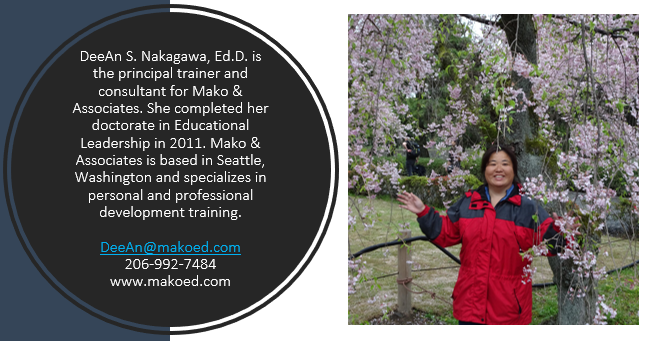
Have you ever worked with people who thought they deserved a promotion but resisted suggestions to get it? Dress for the job you want, not the one you have is good advice. While there are certainly jobs that do not require a pressed suit for every day of work, a professional appearance still makes an impression that counts. Pride in how you look can certainly help in getting recognized in a good way.
Have you heard you should not judge a book by its cover? It is great advice that most people do not follow. Whether consciously or not, most people make instant judgements based purely on visual cues. Many biases, intentional or not, are quickly engaged.
I remember several years ago when I was hiring for an assistant, a young man randomly walked in to follow up on his submitted resume. He came in with his dog (a risk but I like dogs), dirty and torn clothing and with a distinct odor of an herb that was not legal at that time. I recognize the need to work for an income, but he did not make an impression of someone who would represent my organization well and meet the needs of the job. Compounding this, as we reviewed his resume, we found it to have errors in spelling and punctuation as well as a lack of content.
Ask yourself, what impression do I want to make? Is this impression worth making an extra effort to look the part? I am not suggesting you should be ready to walk the Fashion Week stage, but you should look like you take pride in yourself and what you do. Dressing for success also shows preparation, pride and forethought to your potential employer.
Making an impression is not limited to what you wear but also includes how you are seen. If your supervisor were to randomly walk around the office, would you appear professional? If you attend networking events (and you should!) what are people observing about you? It is important because they may be your next employer.
I work with younger staff as a lifeguard in a public pool and often need to remind them that all patrons are our bosses. At a city facility, our patrons pay our salaries and depend on us to keep them safe. For instance, if we look sleepy, would a new parent feel comfortable that we will keep their children safe? If we are just sitting in a dirty office, would patrons feel their taxes and entry fees are being used effectively? And, would they support continuing to use funds for our operation?
Professional appearance can also include when you are seen. If you consistently prepared and ready to go for your shift or meeting, you are much more likely to receive a promotion. If you are seen just barely getting to work on time or are consistently late, supervisors may see you as a risk for needing coverage which can be stressful. Staff who cause me stress, especially if consistently, would not be high on my list to promote.
Even if not within eye sight, are you thought of as being a contributor or detractor from the team? People who give suggestions for improvement, who are self-starters and are excellent resources to others are more likely to be promoted than those who are constantly complaining and lazy.
If you dress the part, another benefit is that you are more likely to psychologically motivate yourself to succeeds. In August of 2015, a Social Psychology and Personality Science study has participants take cognitive tests in casual or formal attire. Results suggested that people tend to feel more able and more professional when dressed up.
If your supervisor sees a professional appearance and performance, if you are reliable, professional and capable, you are more likely to be thought of as a strong candidate when promotion opportunities become available.
To learn more about building a professional workplace environment, visit our website at www.makoed.com, email Mako & Associates at DeeAn@MakoEd.com or 206-992-7484.
